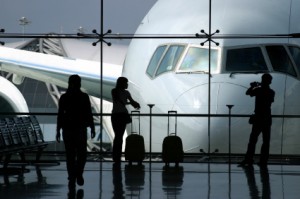- About
- Training
- Social Worker Personal Safety and Situational Awareness Training
- Personal Safety & Security Awareness for Men & Women in the Workplace
- Personal Safety and Security Awareness During Civil Unrest
- Personal Safety and Situational Awareness for Hospice Care Providers and Chaplains
- Travel Safety & Security Awareness Training
- Personal Safety for Case Managers, Home Health Caregivers and Hospice Caregivers
- Lone Worker Personal Safety and Situational Awareness Training Course
- Working from Home. Telecommuting. Home Safety Training
- REALTORS® and REO Brokers Personal Safety
- Personal Safety and Situational Awareness Training for Front Desk Professionals
- Personal Safety Training for Hospitality Industry Employees
- Student Safety:Women in High School & College
- Workplace Violence Prevention & Security Consulting
- Social Media Safety
- Student Safety.School Assembly Workshops
- Blog
- Resources
- Clients
- Contact Us
- Partners
Travel Safety & Security Awareness Training
- Most of us are aware that there is inherent risk in traveling, especially abroad.
- Professionals in the security and executive protection arenas are consistently frustrated with how few business travelers actually engage in some form of situational awareness training to mitigate risk.
- These risks range from petty theft to armed robbery, carjacking, abduction, kidnap for ransom, vehicle ramming attacks, stabbings and hotel room invasions .
- Regional unrest in various parts of the globe have increased the risk of travel to countries non related.
- Travel safety training provides specific knowledge enabling the traveler to more readily recognize and avoid potential problems while obtaining the skills necessary to better handle situations that might arise.
- We live in an ever changing world when it comes to the tactics of those who wish to do us harm. Thinking “Outside the Box” is critical to structuring proactive measures to deal with evolving threats that the “Lone Wolf” or sophisticated actors or petty criminal will present.
- Those who travel abroad with some basic situational awareness training in place are typically at lower risk in an increasingly turbulent and dangerous world.
Overview
This class addresses the issues of safety while traveling within the United States or internationally on business, vacation, school functions, athletic events and mission work.
Audience
For all travelers, regional, national and international.
Duration
- On-Site Half to Full Day
- International / Higher Risk Destinations – Full Day
- Live, customized interactive webinars. 2-3 hours duration.
Do you need a specific travel safety briefing for a small group on short notice?
Contact us: info@personalsafetygroup.com
Topics/Issues Covered Include:
- Duty of Care.
- Apathy, complacency and denial; the barriers to awareness and preparedness
- Pre- trip planning, itinerary considerations hotel & hotel room selection
- Travel risk assessment as part of travel safety planning
- Medications, medical devices, and TSA and host country compliance.
- Ground transportation, authenticating ride sharing and scheduled car service
- Social media, location based services, and hard drive content (Phones and computers)
- Communication planning
- Medical considerations, evacuation and in country assets
- Maintaining awareness & focus in unfamiliar and disorienting environments
- Blending in. When I cant blend in?
- The importance of body language when there is a language barrier
- What to do when approached by a stranger & recognizing “set ups”
- Safe transition between meetings, hotels, airports & other destinations
- “Express kidnappings”, carjacking, the “predatory drugs” and other crime trends
- In-congruent presentation. Why is that person carrying that large bag & wearing a ski jacket in the summer?
- Understanding and preventing hotel room invasion robberies
- A shooting at the mall. What to do? Where to go?
- Vehicle- Ramming and IED attacks. Cover vs. Concealment and Choke Points
- Understanding and disrupting the victim selection process
- Corporate relocation considerations
- Use of the STEP program, Smart Traveler app and other resources
- Country specific briefings (Customized for clients)
- Avoiding protests, demonstrations and other public gatherings
Related Topic:
What is Situational Awareness Training?
Travel Safety and Security Awareness in an increasingly Turbulent World
Language Barriers and the Importance of Body Language
Travel Safety and Planing. It all Starts with the Ability to Communicate

